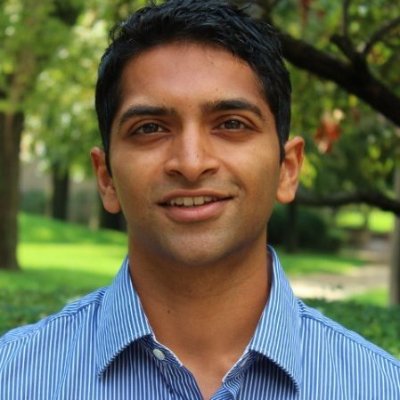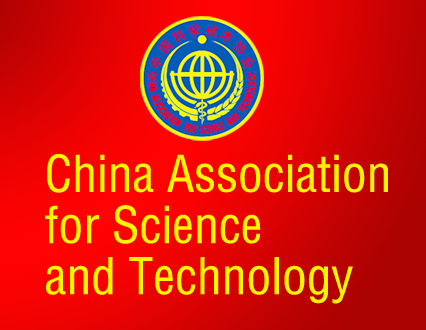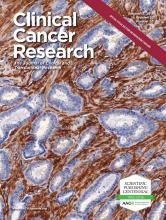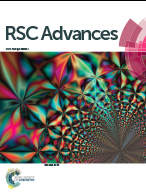Apologies, our email software is acting up again. Here’s today’s Weekend Reads.
Weekend reads: Why so much research is dodgy; why scientists should shun journals; ethical grey zones
 The week at Retraction Watch featured a cancer researcher retracting 19 studies at once from a single journal, and the story of how a 7-year-old came to publish a paper. Here’s what was happening elsewhere: Continue reading Weekend reads: Why so much research is dodgy; why scientists should shun journals; ethical grey zones
The week at Retraction Watch featured a cancer researcher retracting 19 studies at once from a single journal, and the story of how a 7-year-old came to publish a paper. Here’s what was happening elsewhere: Continue reading Weekend reads: Why so much research is dodgy; why scientists should shun journals; ethical grey zones
Cancer researcher retracts 19 studies at once

A former cancer biologist at the Moffitt Cancer Center in Tampa, Florida has retracted 19 papers from a single journal.
Jin Cheng, who studies how ovarian cancer develops, withdrew 19 papers from the Journal of Biological Chemistry originally published over the last 15 years, and corrected another. All of the retractions are for image manipulation.
For example, here’s the notice for “Activation of phosphatidylinositol 3-kinase/Akt pathway by androgen through interaction of p85α, androgen receptor, and Src,” a paper originally published in 2003: Continue reading Cancer researcher retracts 19 studies at once
Psst…did you hear? The effect of gossip on misconduct

If scientists are hesitant to formally report their colleagues when they suspect them of misconduct, can simply gossiping about their concerns in informal settings – at meetings, conferences, etc – clean up the literature? That’s a question Brandon Vaidyanathan and his colleagues tried to answer in “Gossip as Social Control: Informal Sanctions on Ethical Violations in Scientific Workplaces,” published last month in Social Problems. We spoke with Vaidyanathan, now the director of research at The H.E. Butt Family Foundation and Public Policy Fellow at the University of Notre Dame, about how scientists use gossip to warn others of potential misconduct – and whether it works.
Retraction Watch: What prompted you to discuss the role gossip can play in scientific misconduct? Continue reading Psst…did you hear? The effect of gossip on misconduct
Ever heard of China’s “five don’ts of academic publishing?”
 No country is immune to misconduct — but some are being more proactive than others.
No country is immune to misconduct — but some are being more proactive than others.
China, for one, has issued a policy dubbed the “5 don’ts of academic publishing,” which appear to specifically target the ways in which researchers have subverted the peer-review process or hired outsiders to help them with their manuscripts.
An announcement signed by the The Chinese Association for Science and Technology (CAST), Ministry of Education, Ministry of Science and Technology, Health and Family Planning Commission, Chinese Academy of Sciences, Academy of Engineering, and the Natural Science Foundation stipulates: Continue reading Ever heard of China’s “five don’ts of academic publishing?”
Researcher pegged for misconduct in 11 papers earns 2nd retraction
 A cancer journal has retracted a paper by a researcher who doctored data in 11 studies, according to a report by the U.S. Office of Research Integrity (ORI).
A cancer journal has retracted a paper by a researcher who doctored data in 11 studies, according to a report by the U.S. Office of Research Integrity (ORI).
According to an investigation report released by the ORI last year, all 11 studies co-authored by Girija Dasmahapatra, formerly based at Virginia Commonwealth University (VCU) in Richmond, will either be retracted or corrected. In April, Dasmahapatra lost the first of the 11 papers flagged by the ORI in the journal Leukemia. Earlier this month, a second paper from the list was pulled by Clinical Cancer Research.
Dasmahapatra isn’t the only VCU researcher who’s been busy correcting the literature. All 11 papers mentioned in the ORI report list Steven Grant as last author; Paul Dent is a co-author of nine of these studies. Last month, we reported on a retraction in the Journal of Biological Chemistry (JBC) and a mega-correction in Molecular Pharmacology issued for papers by Grant and Dent due to problems with images. Neither paper included Dasmahapatra as a co-author.
We’ve also previously reported on four other errata for image-related issues for papers by Dent (one of which lists Grant as a co-author). Now, we’ve come across another correction in JBC for the pair, which was published last month.
First, here’s the new retraction notice from Clinical Cancer Research, which includes Grant and Dent as co-authors: Continue reading Researcher pegged for misconduct in 11 papers earns 2nd retraction
Chem paper “the product of intentional, knowing, or reckless falsification, fabrication, and plagiarism”
 A journal has retracted a study after an institutional investigation concluded that it was riddled with misconduct.
A journal has retracted a study after an institutional investigation concluded that it was riddled with misconduct.
According to the retraction notice in RSC Advances, the first author submitted the paper without the knowledge of the other two co-authors, and the paper was falsified, fabricated, and plagiarized. The notice cites a probe at the University of Tennessee (UT) at Knoxville — where all three listed authors are based — that concluded the study’s findings were invalid.
We asked a UT spokesperson if the first author, Sammy Eni Eni, was still based at the institution, and received this response: Continue reading Chem paper “the product of intentional, knowing, or reckless falsification, fabrication, and plagiarism”
Scientist embroiled with PubPeer engaged in “widespread research misconduct,” investigation finds

An investigation into a scientist suing PubPeer commenters over criticisms of his work has concluded that the researcher engaged in widespread misconduct and should retract 42 papers.
The investigation report by Wayne State University, obtained by The Scientist, reveals that Fazlul Sarkar created a research environment that encouraged productivity but cut corners when it came to integrity: Continue reading Scientist embroiled with PubPeer engaged in “widespread research misconduct,” investigation finds
Ohio State, CrossFit gym make six-figure settlement over corrected paper’s injury claims

The Ohio State University (OSU) has settled a lawsuit with a CrossFit affiliate over allegations that a study had defamed the gym.
As first reported by Columbus Underground, the university has agreed to pay Mitchell Potterf, owner of Fit Club in Columbus, Ohio, $145,000 to settle claims that a 2013 paper by OSU researchers included false data about injuries suffered by 11 athletes who took part in a fitness challenge. According to a statement filed by Potterf and his attorney, Ken Donchatz, in the Ohio Court of Claims, based on depositions, Continue reading Ohio State, CrossFit gym make six-figure settlement over corrected paper’s injury claims
Cancer paper flagged due to “credible” concerns over its reliability, journal says
 A journal has issued an expression of concern (EOC) for a cancer study after the publisher received what it called a “credible” tip that its results may not be reliable.
A journal has issued an expression of concern (EOC) for a cancer study after the publisher received what it called a “credible” tip that its results may not be reliable.
According to the EOC, published in RSC Advances, the paper is now under investigation.
Here’s the EOC for “Filled and peptide-modified single-walled carbon nanotubes: synthesis, characterization, and in vitro test for cancer cell targeting:” Continue reading Cancer paper flagged due to “credible” concerns over its reliability, journal says